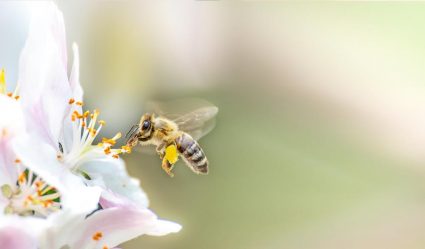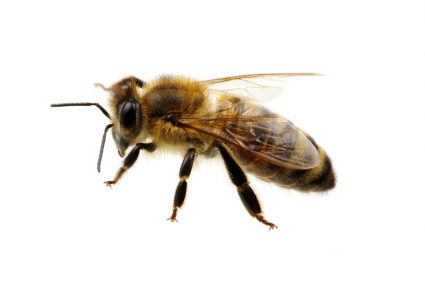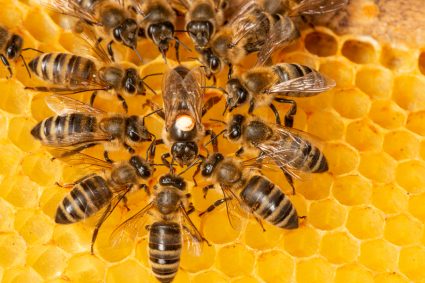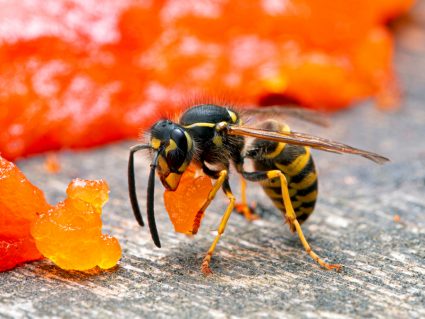
Introduction:
Skunks, known for their distinctive black and white coloring, are perhaps best recognized by their powerful and off-putting smell. This scent is so potent that it can be detected up to a mile away and can linger for days to weeks. But what makes skunk smell so strong? Let’s delve into the biology and chemistry behind this potent odor.
The skunk smell is so strong due to sulfur-containing chemicals known as thiols or mercaptans that skunks produce in their anal glands. These compounds are notorious for their strong and unpleasant odor. The spray also contains thioacetates, which convert into thiols when exposed to water, intensifying the smell. The strength of the smell serves as a potent defense mechanism against potential predators and also plays a role in communication among skunks. The oily texture of the secretions makes the smell linger for a long time.
The Chemistry Behind the Smell
Skunks produce a spray from their anal glands that is packed with sulfur-containing chemicals known as thiols or mercaptans. Thiols are organic compounds made up of sulfur and hydrogen atoms bonded together. These compounds are notorious for their strong and unpleasant odor. In striped skunks, there are three different thiols, with two of them being the main contributors to the awful smell: (E)-2-butene-1-thiol and 3-methyl-1-butanethiol.
Additionally, skunk spray contains thioacetates, compounds that initially don’t have a strong scent but can easily convert into thiols when exposed to water. This conversion might explain why a pet that gets sprayed may start to smell skunky again after a bath.
The Biological Purpose of the Smell
The strength of a skunk’s smell is crucial for its survival, serving as a potent defense mechanism. When threatened, skunks can spray this foul-smelling fluid up to 10 feet away. The smell can cause nausea, watery eyes, and even temporary blindness if it comes into contact with the eyes, making it an effective deterrent against potential predators.
Skunks prefer not to spray, as it takes time to replenish their spray supply. Therefore, they usually display warning signs before spraying, such as stomping their feet, hissing, and arching their tail over their back.
In addition to its defensive role, the skunk’s smell also plays a part in communication. Skunks use scent marking to communicate their presence and reproductive state to other skunks.
Environmental Factors and Persistence of Skunk Smell
The environment can affect the potency of a skunk’s smell. Factors such as humidity, temperature, and the presence of other odors in the environment can influence the intensity of skunk odor. High humidity, for instance, can enhance the lingering smell.
The persistence of skunk smell is due to the nature of the chemicals in its spray. The oily texture of skunk secretions can adhere to surfaces and be difficult to remove, causing the smell to last for weeks or even months if not treated promptly.
Other Animals with Strong Odors
Skunks are not the only animals that use strong odors for defense. Other animals like the striped polecat, lesser anteater, and some species of millipedes and beetles also produce strong odors when threatened.
How to Get Rid of Skunk Smell
Getting rid of skunk smell involves a combination of home remedies and commercial products. For pets, a mixture of hydrogen peroxide, baking soda, and liquid soap can be effective. For clothing and fabrics, washing with detergent and baking soda can help. Commercial products like Nature’s Miracle Skunk Odor Remover or ZORBX Unscented Skunk Odor Remover Spray can also be used.
Conclusion
The strength of a skunk’s smell is a fascinating combination of chemistry and biology, serving as a potent defense mechanism for this creature. Understanding the science behind the smell can help us appreciate the unique adaptations of skunks and provide insights into effective ways of dealing with this potent odor.
Frequently Asked Questions
How often can a skunk spray?
A skunk can spray multiple times but it takes about 10 days to replenish its spray supply after a full discharge.
What should I do if I get sprayed by a skunk?
If sprayed by a skunk, immediately wash your skin with a mixture of hydrogen peroxide, baking soda, and liquid soap to neutralize the odor. If your eyes are affected, flush them with plenty of water.
Can skunks spray humans?
Yes, skunks can spray humans. They usually spray as a last resort when they feel threatened.
How far can a skunk spray?
A skunk can spray up to 10 feet away.
How long does it take for skunk smell to go away?
If not treated, skunk smell can last for weeks or even months. However, with prompt and correct treatment, the smell can be removed in a shorter time.
Can humans detect all the components in skunk spray?
Humans are particularly sensitive to thiols, the sulfur-containing compounds in skunk spray, which contribute to its potent smell. However, there are other compounds in the spray that humans may not be able to detect as effectively.
Are there any health risks associated with skunk spray?
While unpleasant, skunk spray is not generally harmful to humans. However, it can cause temporary blindness and intense discomfort if it gets into the eyes. It’s also possible for someone to be allergic to the compounds in the spray, which could potentially result in a more severe reaction.












